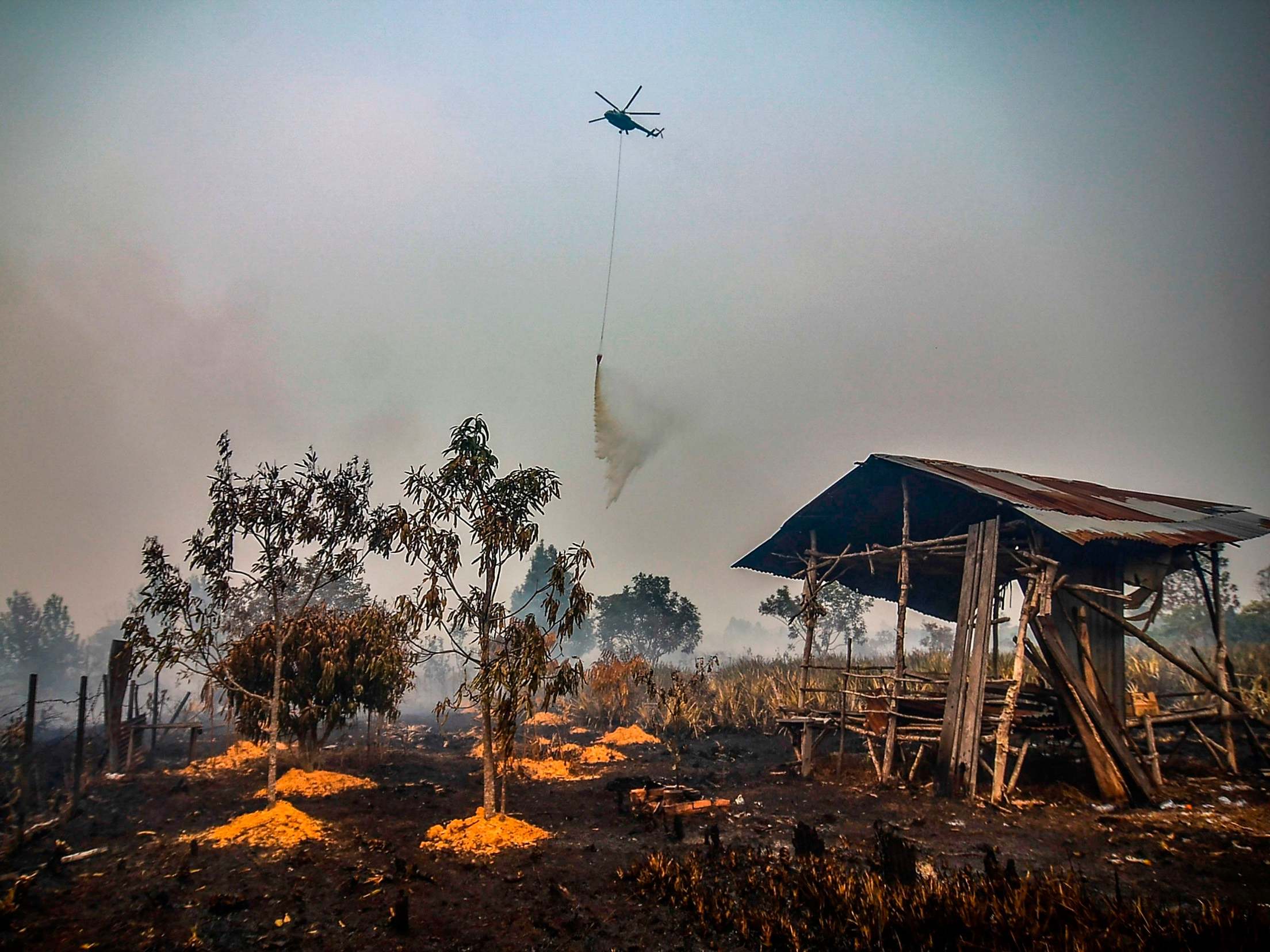Indonesian police arrest hundreds linked to forest fires spreading noxious haze across southeast Asia
Thai authorities say it has reached a dangerous level in the last few days

Indonesian police said they have arrested 230 people on suspicion of starting some of the fires which have spread health-damaging haze across a large part of southeast Asia.
Three men were caught while trying to clear land to plant crops in Tesso Nilo National Park, which is home to about 140 endangered wild elephants, said national police spokesman Dedi Prasetyo.
Those arrested could be prosecuted under an environmental protection law that provides for a maximum 10-year prison sentence for setting fires to clear land.
Indonesia‘s fires are an annual problem that strains relations with neighbouring countries.
The smoke from the fires has blanketed parts of Indonesia, Singapore, Malaysia and southern Thailand in a noxious haze.
Poor visibility caused by smoke has caused delays of flights at several airports in Indonesia and Malaysia and prompted authorities to shut thousands of schools in some parts of the two countries, affecting more than 1.5 million students in Malaysia alone.
Malaysian authorities have been conducting cloud seeding operations in an attempt to clear the haze and are considering passage of a law that would penalise the country's plantation companies that start fires abroad.
Environment minister Yeo Bee Yin said that a more lasting regional solution is needed.
Singapore, directly across the Strait of Malacca from Indonesia’s Riau province on the island of Sumatra, experienced air pollution levels ranging between moderate and unhealthy levels on Thursday.
Elevated levels of PM2.5, tiny airborne particulates, caused Singaporean authorities to issue health advisories to limit outdoor activities, especially among the elderly, pregnant women and children.
PM2.5 particulates are small enough to be sucked deep into the lungs and enter the bloodstream, and can cause respiratory problems and over time may raise the risk of cardiovascular disease and cancers.
Thailand’s southernmost provinces were also blanketed with haze from Indonesian fires.
Thai authorities said the level of air pollution has risen since 5 September, reaching a dangerous level in the last few days.
The Air Pollution Research Station of Prince of Songkhla University urged residents of the affected areas to refrain from outdoor activities and not leave home without wearing masks.
“We face the problem every year between July and September, the worst was in 2015,” said Kaneungnit Srisamai of the government’s environment quality monitoring centre. “We have seen less smoke in the last four years, but this year we may be facing it again due to a reduction in rainfall.”
In addition to the arrests, Indonesian authorities have also sealed off land owned by at least 49 plantation companies in the past week for investigation after fires were found there.

The Indonesian Disaster Mitigation Agency detected 2,719 hotspots across the country on Thursday.
It said 99 per cent of the hotspots were caused by deliberately set fires.
Indonesia’s annual dry season fires were particularly disastrous in 2015, burning 2.6 million hectares (10,000 square miles) of land.
The World Bank estimated the fires cost Indonesia $16bn (£12bn) and a Harvard and Columbia study estimated the haze hastened 100,000 deaths in the region.
Associated Press
Join our commenting forum
Join thought-provoking conversations, follow other Independent readers and see their replies
Comments